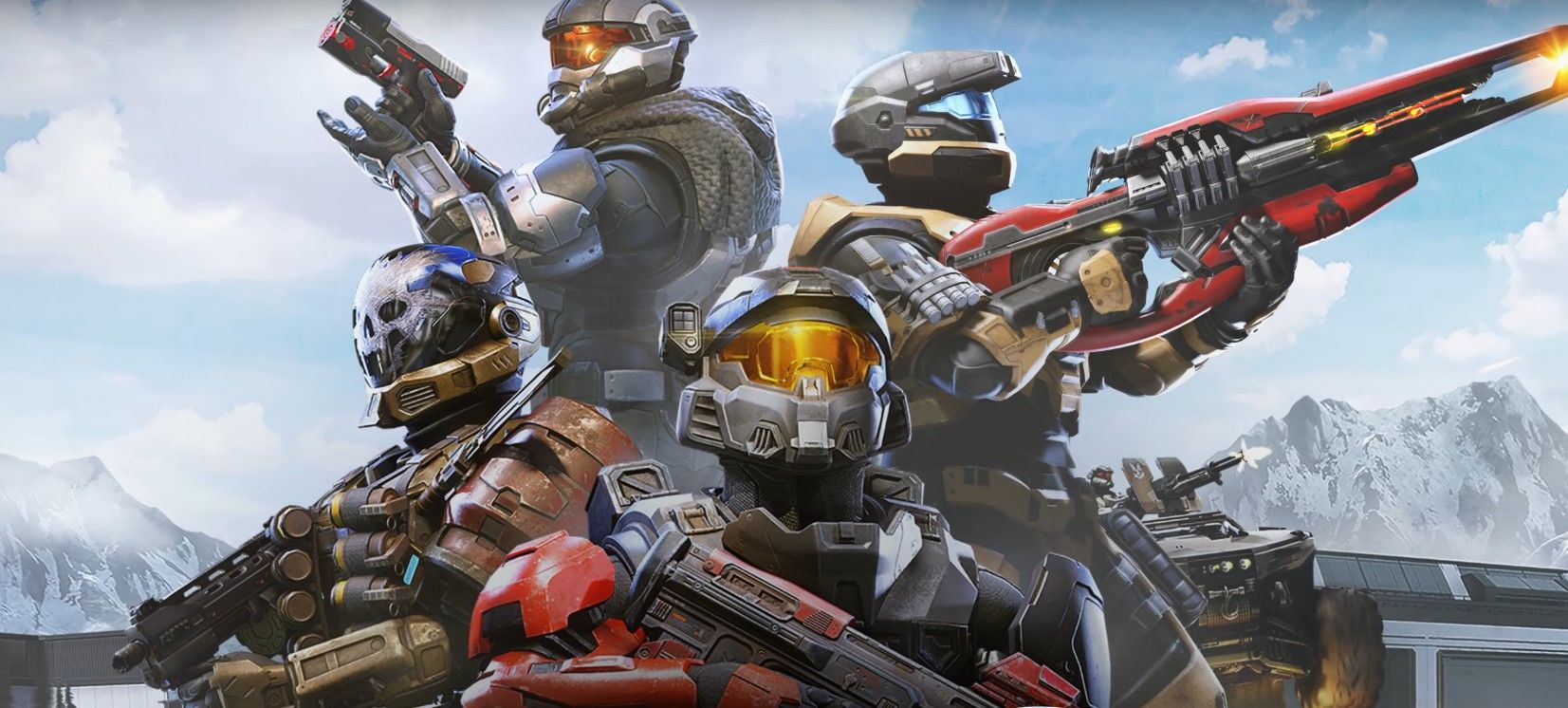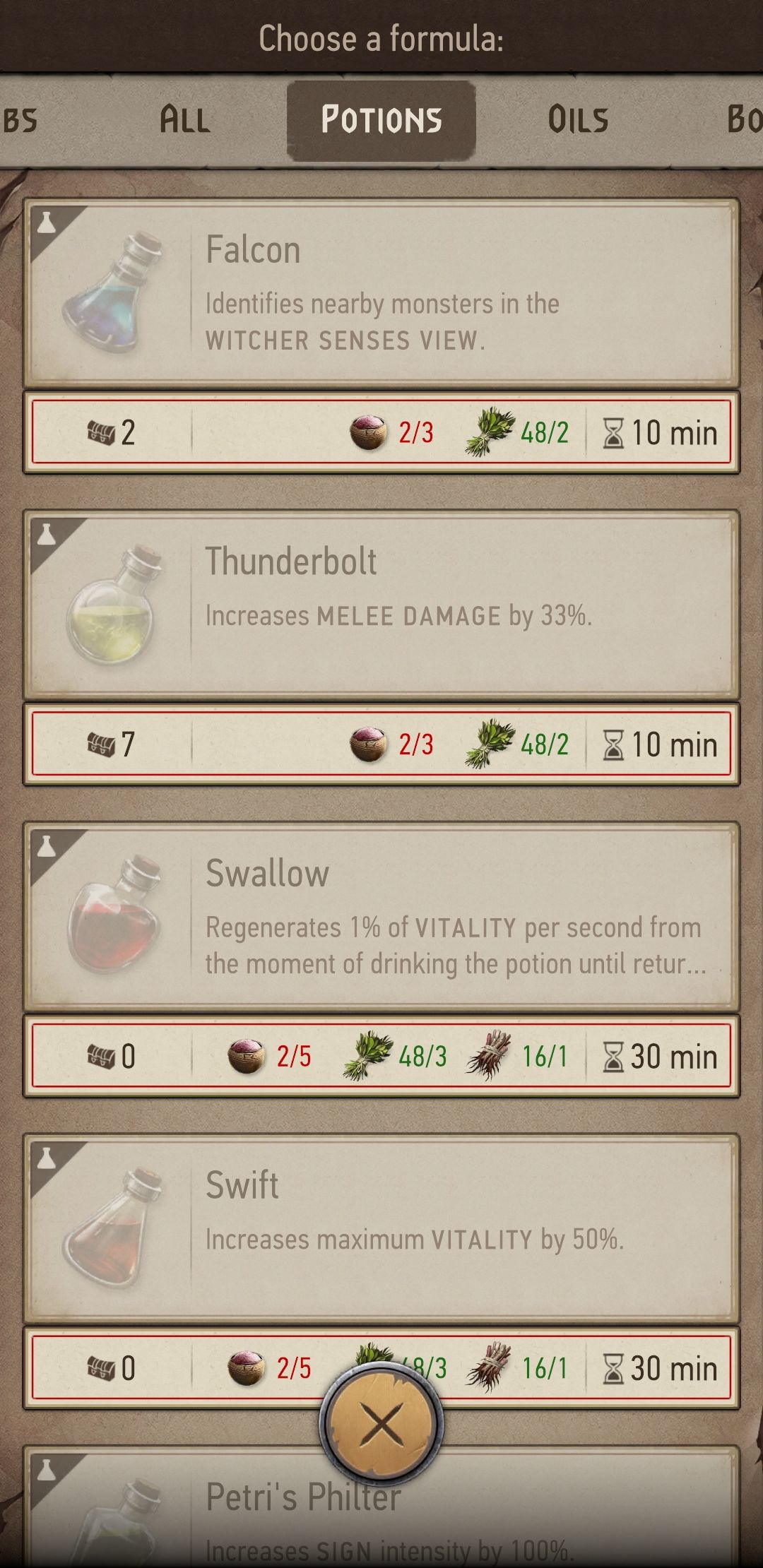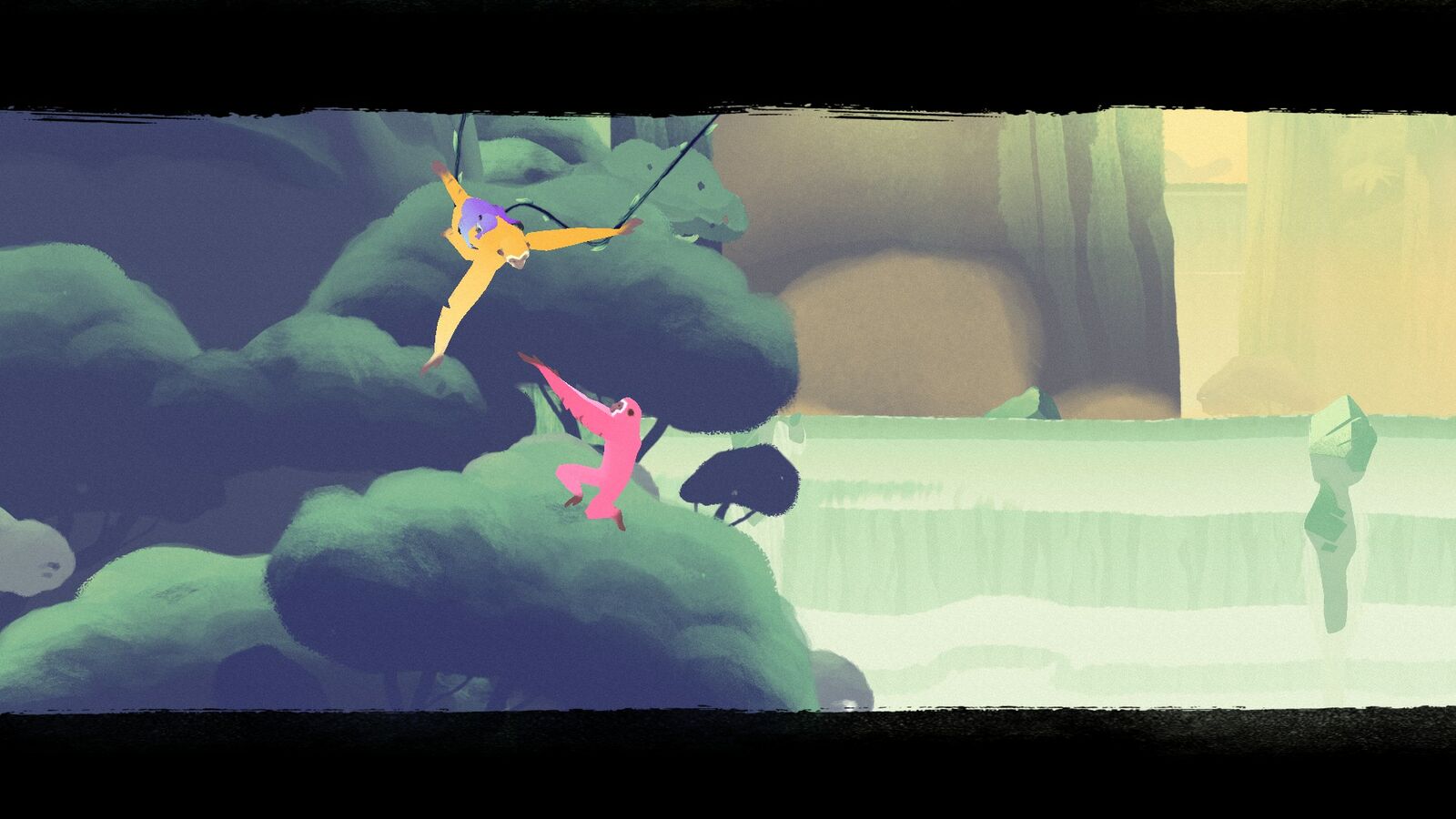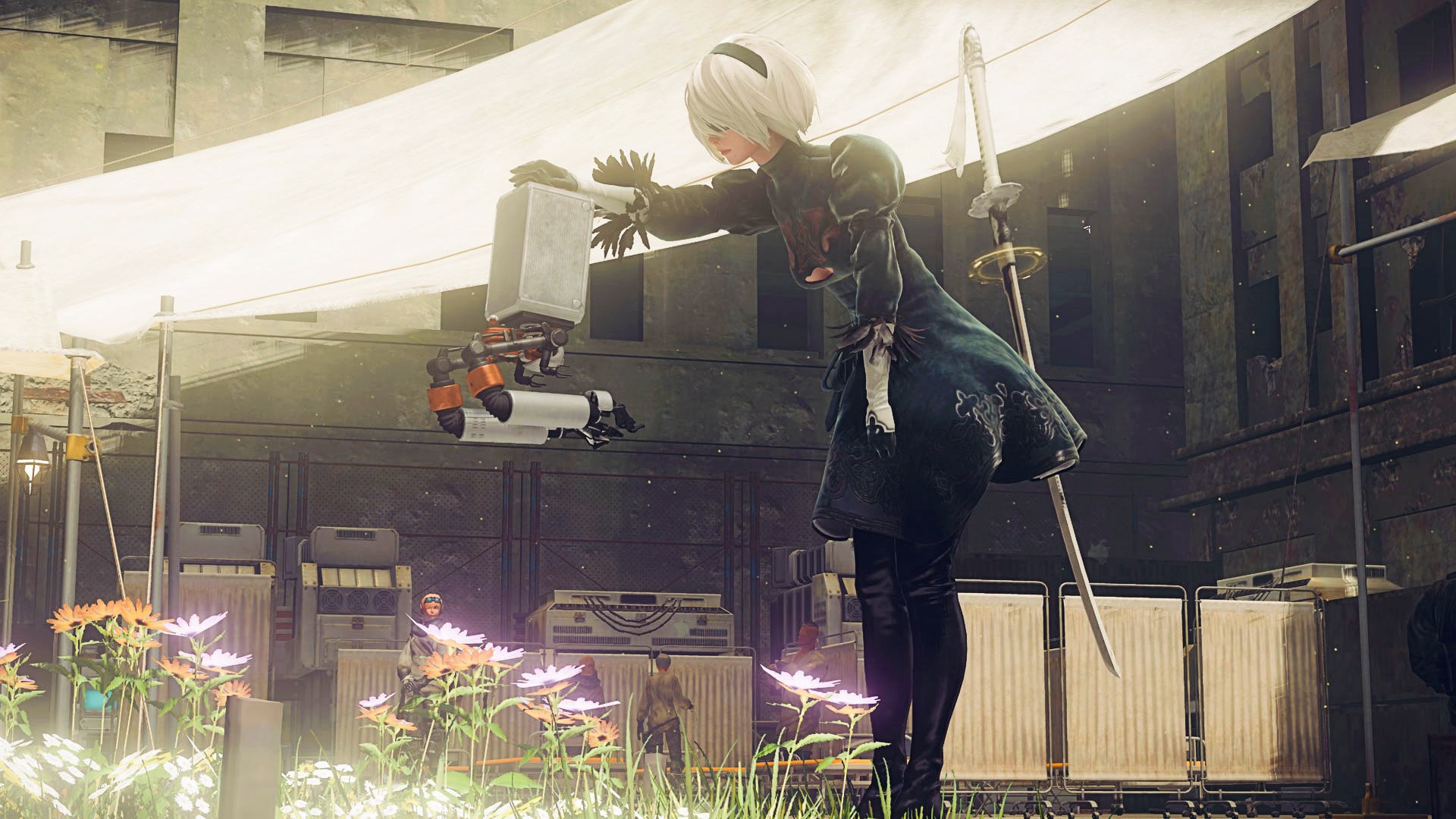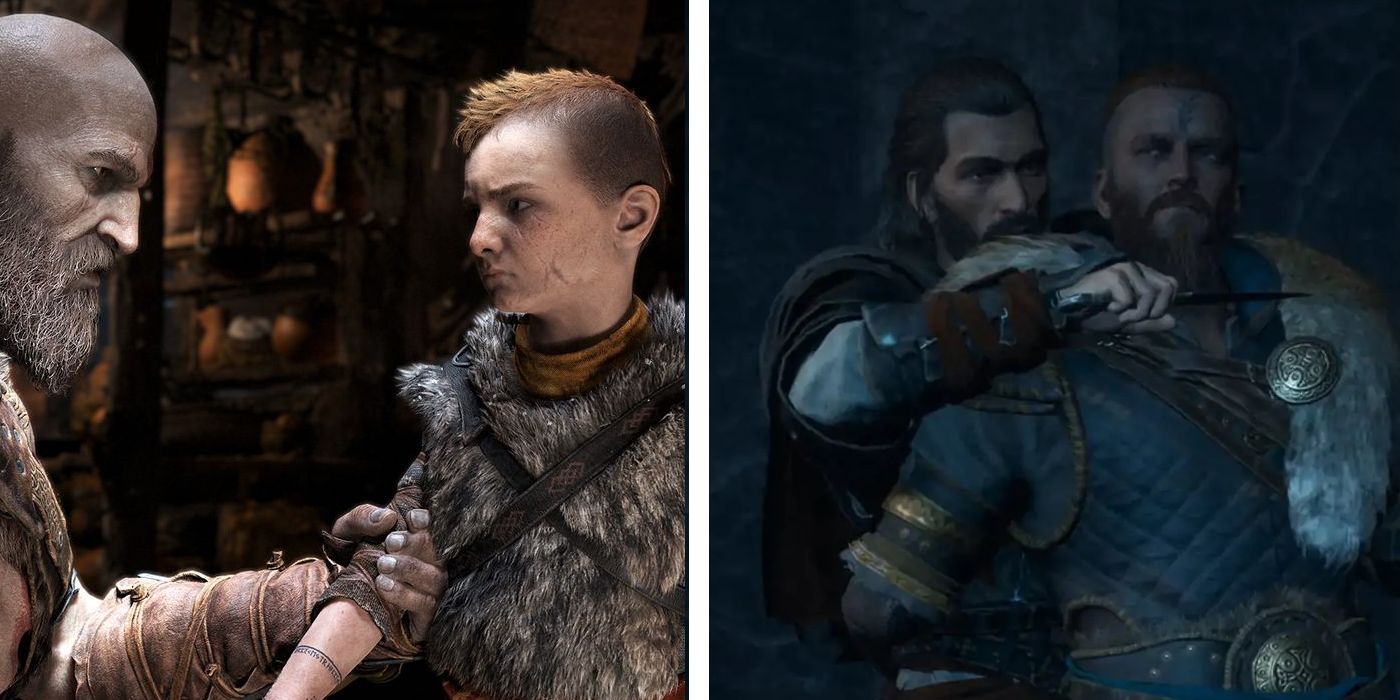
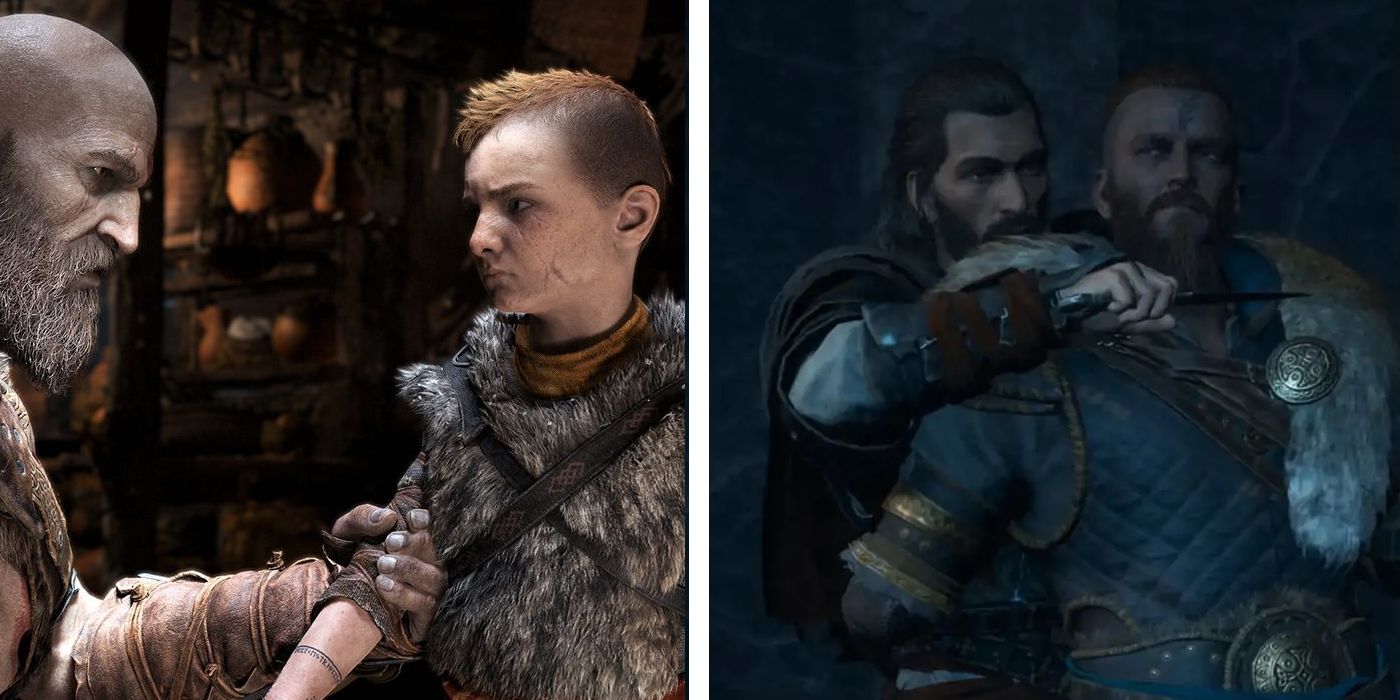
2018's God of War and 2020's Assassin's Creed Valhalla are both Norse-themed games, but while the latter took players to a fictionalized version of Viking Age Britain and Scandinavia, God of War took place across several of the Nine Realms of Norse mythology itself. Despite the differences between Assassin's Creed Valhalla's sci-fi flavored historical fiction and God of War's pure fantasy, the two titles share one major plot-point in common.
In both God of War and Assassin's Creed Valhalla, one of the player's closest companions is revealed to be a version of Loki, the Norse god of deceit. There are some subtle differences, however, between the ways each game handles the twist. These seemingly small differences could have some interesting implications for the next game in each series.
RELATED: All of Thor's Major Video Game Appearances

Both God of War and Assassin's Creed Valhalla reveal that one of the player's close companions is Loki. God of War reveals that Atreus, Kratos' son, was originally named Loki by his Jotunn mother. Although unaware that his wife was a Jotunn, Kratos already knew that his son was a god like him and spent a lot of the 2018 game trying to hide Atreus' true lineage from him. Kratos attempted to stop his son from becoming a part of the same cycle of violence and revenge that consumed much of his own life in the original God of War trilogy.
In Assassin's Creed Valhalla, it is revealed that the player's ally, Basim Ibn Ishaq, is in fact a reincarnation of Loki. In the Assassin's Creed universe, reincarnation is actually a scientific process mastered by the Isu, allowing them to hide their memories in the DNA of certain humans known as Sages. The Isu are the species which ruled the First Civilization before its collapse, and they genetically engineered humans to be their laborers, before a war and a solar flare caused their society to fall apart. The gods of Assassin's Creed are similarly rooted in sci-fi. All of them are in fact Isu, reinterpreted as gods by humanity years after they were gone.
The similarities are clear, but if there was any god who was going to form the foundation for a twist in a Norse-based game it's unsurprising that both Ubisoft and Santa Monica Studio chose Loki, a trickster and shapeshifter. Although both games reveal one of the player character's companions to be Loki, however, there are some key differences.
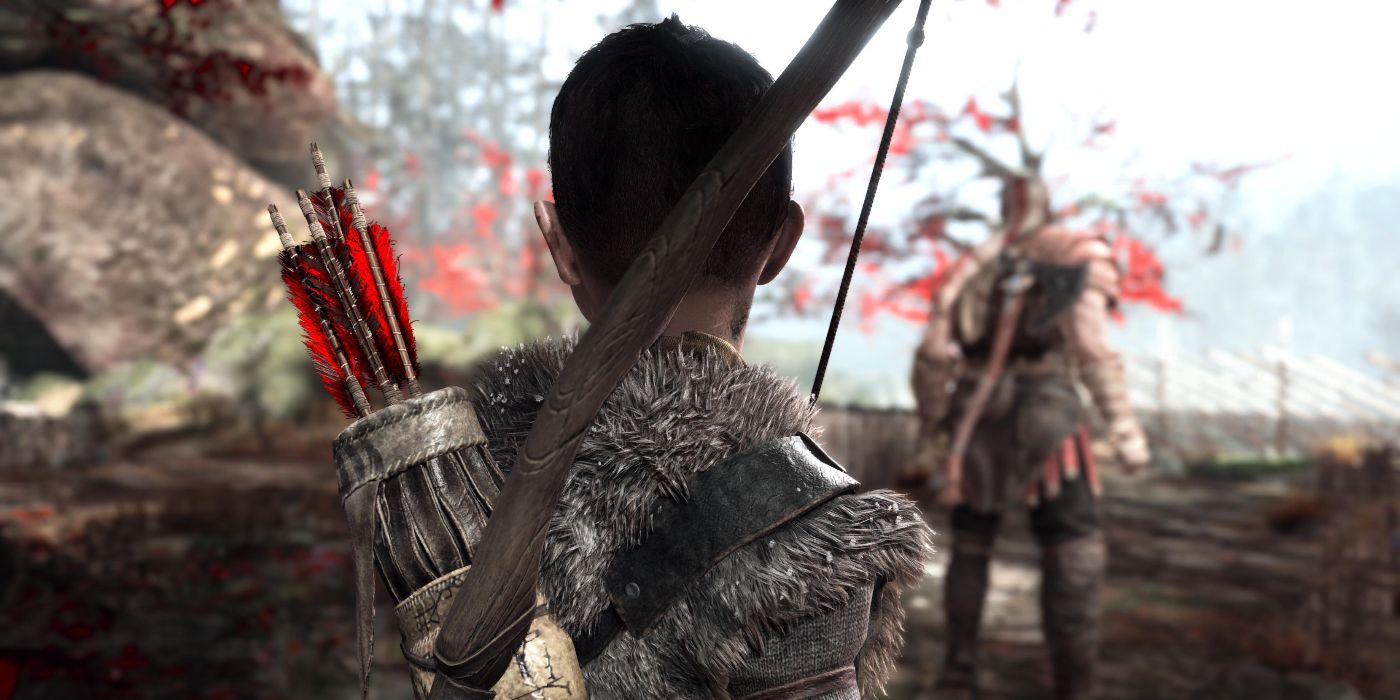
Despite being the god of deceit, the reveal that Atreus is Loki doesn't actually reveal any deception of Atreus' part. As a Jotunn who had foreknowledge of the events of Ragnarok, presumably only Atreus' mother knew the true meaning of Loki's name and the role her son was destined to play. For much of God of War Atreus is totally in the dark about his ancestry on Kratos' side as well, and the reveal of his name doesn't mean much to either Atreus or Kratos in-universe, only hinting to the player that Atreus will be central to the events of Ragnarok.
In contrast, the reveal that Basim is a reincarnation of Loki is an in-universe twist with meaning for the player character, not just the player. Throughout the game Eivor has been piecing together the events of Ragnarok — the Great Catastrophe to the Isu — when the First Civilization was wiped out by a solar flare. Although, like Atreus, Basim spent much of his life not realizing he was Loki. The reveal that he is Loki is the reveal that another being from the distant past has taken over his mind, which is far from the case with Atreus.
The Loki of Assassin's Creed has also already experienced and survived that universe's version of Ragnarok, while the Ragnarok of God of War has yet to happen. The future of God of War's Loki is tied up in the Ragnarok prophecy, even if the next game's story ends up subverting parts of that prophecy. In contrast, the future of Assassin's Creed's Loki after he is revived in the modern day is unwritten.
RELATED: God of War: Actors Who Would Be Perfect Casting for Kratos in a Movie

It seems likely that Basim's role as Loki in the next Assassin's Creed will be antagonistic. Many God of War fans suspect that Atreus could end up being a villain of some kind in the next game as well. The final panel of the Jotunheim mural showed Atreus cradling what appeared to be a corpse or a dying man, with an unknown and presumably magical substance connecting Atreus and the body by the mouth.
Some players took this to mean that Atreus will kill Kratos, although the lying figure does not have the same tattoos or clothing as Kratos in his depictions elsewhere in the mural. It could be Odin based on what looks like a missing eye, Tyr based on the figure's missing arm, or another unknown character.
Although Basim is now in control of the staff of Hermes Trismegistus in Assassin's Creed's modern day, it isn't exactly clear what he plans to do with that power. Originally, his motivation for preserving his DNA and becoming reincarnated was to take revenge on Tyr and Odin — reincarnated as Sigurd and Eivor respectively — for killing his son Fenrir during Ragnarok. Now, however, the world is his oyster. What exactly he plans to do with it has yet to be revealed, though it's unlikely to be pleasant.
In both cases, it's unclear exactly what role Basim and Atreus will play in the next game. The mythological Loki is similarly hard to pin down, with his deeds ranging from simply mocking the gods to plotting their deaths. It seems likely, however, that although the games share a surprisingly similar twist, they will now go in very different directions with their versions of the character based on what their stories demand.
God of War is available now on PS4, while Assassin's Creed Valhalla is out now on PC, PlayStation 4, PlayStation 5, Xbox One, Xbox Series X|S, and Google Stadia.
MORE: God Of War: Every Talisman, Ranked

